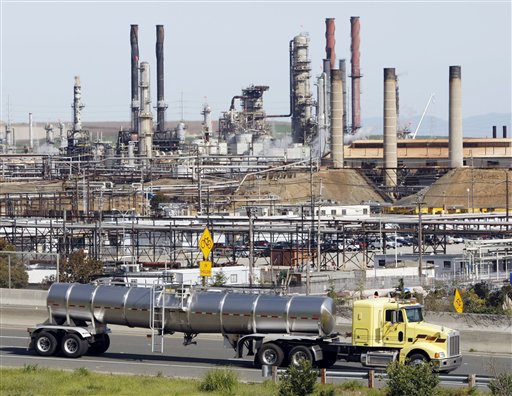Last Wednesday, delivering his victory speech in Chicago, President Obama elevated an issue that had hardly come up during the campaign. “We want our children to live in an America,” he said, “that isn’t threatened by the destructive power of a warming planet.”
Later that day, Senate Majority Leader Harry Reid, D-Nev., told reporters that climate change is an important issue and that he wants to “address it reasonably” — particularly following big storms in the Northeast that have highlighted rising sea levels and other dangers associated with global warming.
House Speaker John Boehner, R-Ohio, meanwhile, spoke about cooperating with Democrats on urgently needed budget reform.
Now if there were just some policy that would reduce carbon emissions and raise federal revenue …
A tax on carbon, of course, is that policy, and lawmakers and the president should be discussing it. The idea is to put a simple price on emissions of carbon dioxide and other greenhouse gases — some dollar amount per ton of CO2 — that steadily increases at a pre-set rate.
This is the best plan lawmakers can take off the shelf to fight global warming. As an added benefit, it would reduce dependence on imported oil. If businesses and consumers had to pay something for the otherwise invisible costs of their actions — in this case, pollution — they would be more careful. Their combined preferences, not those of Congress or bureaucrats, would determine how to wring carbon out of the economy.
Homeowners might turn down their thermostats or weatherize their windows. Power companies would devise the cheapest ways to reduce the carbon dioxide they emit, without the government ordering them to build this or to refrain from that. At first, they would probably burn more natural gas and less coal, a cheap way to cut lots of emissions quickly. In the long term, the demand for green technologies would expand, and with it private investment.
A carbon tax would make sense regardless of the revenue it would raise. But the policy could bring in serious money. Economists at Resources for the Future, a nonpartisan think tank, estimate that a tax of $25 per ton of CO2 would raise $125 billion a year. That’s more than entirely eliminating the tax deduction for mortgage interest.
The federal government needs new, economically efficient streams of revenue, to fund priorities such as scientific research and to narrow the deficit. A carbon tax should be atop the list.
Send questions/comments to the editors.



Success. Please wait for the page to reload. If the page does not reload within 5 seconds, please refresh the page.
Enter your email and password to access comments.
Hi, to comment on stories you must . This profile is in addition to your subscription and website login.
Already have a commenting profile? .
Invalid username/password.
Please check your email to confirm and complete your registration.
Only subscribers are eligible to post comments. Please subscribe or login first for digital access. Here’s why.
Use the form below to reset your password. When you've submitted your account email, we will send an email with a reset code.